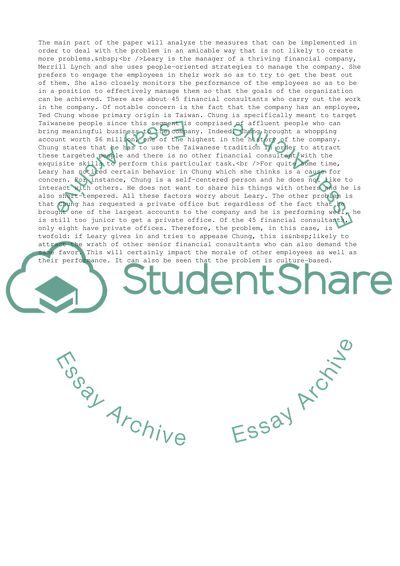Cite this document
(Merrill Lynch and the Main Reasons for Challenges Case Study Example | Topics and Well Written Essays - 1750 words - 4, n.d.)
Merrill Lynch and the Main Reasons for Challenges Case Study Example | Topics and Well Written Essays - 1750 words - 4. https://studentshare.org/management/1799652-case-study
Merrill Lynch and the Main Reasons for Challenges Case Study Example | Topics and Well Written Essays - 1750 words - 4. https://studentshare.org/management/1799652-case-study
(Merrill Lynch and the Main Reasons for Challenges Case Study Example | Topics and Well Written Essays - 1750 Words - 4)
Merrill Lynch and the Main Reasons for Challenges Case Study Example | Topics and Well Written Essays - 1750 Words - 4. https://studentshare.org/management/1799652-case-study.
Merrill Lynch and the Main Reasons for Challenges Case Study Example | Topics and Well Written Essays - 1750 Words - 4. https://studentshare.org/management/1799652-case-study.
“Merrill Lynch and the Main Reasons for Challenges Case Study Example | Topics and Well Written Essays - 1750 Words - 4”. https://studentshare.org/management/1799652-case-study.


